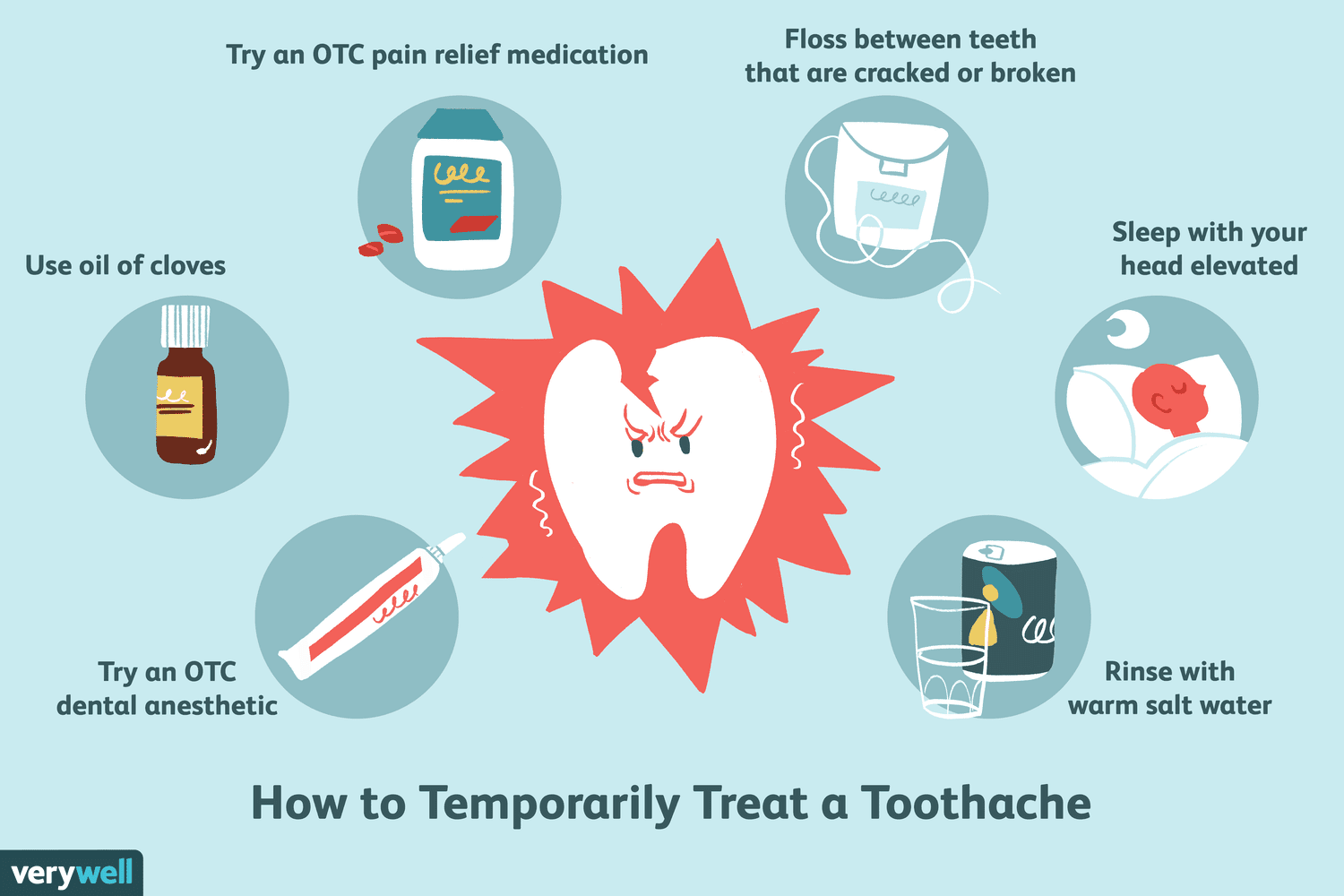Got a toothache that’s driving you crazy? Dental issues can be a real pain in the…well, you know where. But fear not, because I’m here to help you navigate the world of pain relief for dental problems. Whether it’s a pesky cavity, a throbbing toothache, or post-dental procedure discomfort, managing dental pain can be a challenge. But with a few handy tips and tricks up your sleeve, you’ll be well on your way to finding some much-needed relief. So, sit back, relax (if you can), and let’s dive into the world of managing pain relief for dental issues.
When it comes to dental pain, finding effective relief is crucial. But with so many options out there, it can be overwhelming to know where to start. From over-the-counter painkillers to natural remedies, there’s a whole array of possibilities to explore. In this article, we’ll take a deep dive into the best ways to manage dental pain and discuss some tried-and-true methods that can bring you the relief you’re desperately seeking. So, put that ice pack on standby and get ready to discover how to tackle dental pain like a pro.
Managing pain relief for dental issues can be crucial for your comfort and well-being. Here’s a step-by-step guide on how to effectively manage dental pain:
- First, schedule an appointment with your dentist to diagnose the cause of the pain.
- Follow any prescribed medication or pain relievers as instructed.
- Apply a cold compress to the affected area to reduce swelling and numb the pain temporarily.
- Practice good oral hygiene, including regular brushing and flossing, to prevent further dental issues.
- Avoid hot and cold drinks and foods that may exacerbate the pain.
Remember, it’s essential to consult your dentist for a proper diagnosis and treatment plan tailored to your specific dental issue.
How to Manage Pain Relief for Dental Issues?
Dealing with dental issues can be a painful and uncomfortable experience. Whether it’s a toothache, gum inflammation, or post-dental procedure discomfort, finding effective pain relief is essential. In this article, we will explore various strategies and techniques to manage and alleviate dental pain, allowing you to find relief and restore your oral health.
Understanding Dental Pain
Dental pain can stem from a range of causes, including tooth decay, gum disease, dental trauma, or dental procedures such as extractions or root canals. The severity of the pain can vary, from a mild ache to sharp, throbbing sensations. It is crucial to identify the underlying cause of the pain to determine the most appropriate pain relief methods.
When experiencing dental pain, it is essential to consult a dentist to diagnose and treat the issue. They will be able to identify the cause of the pain and provide suitable treatment options. In the meantime, there are several strategies you can use to manage dental pain at home.
Over-the-Counter Pain Relief
Over-the-counter pain medications can provide temporary relief for dental pain. Nonsteroidal anti-inflammatory drugs (NSAIDs), such as ibuprofen or naproxen, can help reduce inflammation and alleviate pain. It is important to follow the recommended dosage and consult a healthcare professional if you have any underlying health conditions or are taking other medications.
Applying a topical oral analgesic gel directly to the affected area can also provide temporary relief. These gels contain numbing agents that help alleviate pain. However, it is crucial to read and follow the instructions carefully to avoid any adverse reactions or misuse.
Home Remedies for Dental Pain
In addition to over-the-counter pain relief, several home remedies can help manage dental pain. These remedies can provide temporary relief until you can seek professional dental care.
One effective home remedy is rinsing your mouth with warm saltwater. Dissolve half a teaspoon of salt in eight ounces of warm water and swish the solution around your mouth for 30 seconds before spitting it out. Saltwater rinses can help reduce inflammation, ease pain, and promote healing.
Another option is applying a cold compress or ice pack to the affected area. The cold temperature can numb the area and reduce swelling, providing temporary relief. Wrap the ice pack or a bag of frozen vegetables in a thin cloth and apply it to the outside of your cheek near the painful area for 15 minutes at a time.
Professional Dental Treatments
While home remedies and over-the-counter pain relief can provide temporary relief, it is essential to address the underlying dental issue by seeking professional dental treatments. Dentists have the expertise and tools to diagnose and treat dental problems effectively.
Depending on the cause of your dental pain, your dentist may recommend various treatments. For example, if tooth decay is the culprit, a filling or a root canal treatment may be necessary. In cases of gum disease, professional cleaning or periodontal treatments may be required. Your dentist will evaluate your specific situation and provide appropriate treatment options.
Preventing Dental Pain
Prevention is always better than cure. Taking care of your oral health can help prevent dental pain and other dental issues. Here are some tips to maintain good oral hygiene:
1. Brush your teeth twice a day with a fluoride toothpaste.
2. Floss daily to remove plaque and food particles from between your teeth.
3. Visit your dentist regularly for check-ups and professional cleanings.
4. Limit sugary and acidic foods and drinks, as they can contribute to tooth decay.
5. Wear a mouthguard during physical activities to protect your teeth from injury.
By following these preventive measures, you can reduce the risk of dental pain and maintain a healthy smile.
Conclusion
Managing pain relief for dental issues requires a combination of at-home remedies, over-the-counter pain relief, and professional dental treatments. While temporary relief can be achieved through home remedies and pain medications, it is crucial to consult a dentist to address the underlying cause of the pain and receive appropriate treatment. By practicing good oral hygiene and seeking prompt dental care, you can effectively manage dental pain and maintain optimal oral health.
Key Takeaways: How to manage pain relief for dental issues?
- Apply a cold compress to reduce swelling and numb the area.
- Take over-the-counter pain relievers like ibuprofen or acetaminophen.
- Rinse your mouth with warm saltwater to alleviate discomfort.
- Avoid eating hard or chewy foods that can worsen the pain.
- Visit a dentist for a proper diagnosis and treatment plan.
Frequently Asked Questions
Managing pain relief for dental issues can be a challenging task. Here are some commonly asked questions about how to effectively manage pain relief for dental problems.
1. What are some at-home remedies for dental pain relief?
There are several at-home remedies that can help alleviate dental pain. One effective method is rinsing your mouth with warm saltwater. This can help reduce inflammation and provide temporary relief. Applying a cold compress to the affected area can also numb the pain and reduce swelling. Over-the-counter pain relievers like acetaminophen or ibuprofen can be taken as directed to alleviate discomfort. However, it is important to remember that these remedies are temporary and it is essential to visit a dentist for proper diagnosis and treatment.
2. How can I manage dental pain while waiting for a dentist appointment?
If you are experiencing dental pain and have to wait for a dentist appointment, there are a few steps you can take to manage the discomfort. Over-the-counter pain relievers can help alleviate the pain temporarily. Applying a numbing gel or cream directly to the affected area can provide some relief. It is also important to avoid foods and drinks that are extremely hot, cold, or sugary, as they can aggravate the pain. Maintaining good oral hygiene by brushing and flossing gently can also help reduce discomfort.
3. Are there any natural remedies for dental pain relief?
Yes, there are some natural remedies that can help with dental pain relief. Clove oil is known for its analgesic properties and can be applied to the affected area using a cotton ball. Peppermint tea bags can be used as a compress to numb the pain. Chewing on a piece of garlic can also provide temporary relief. However, it is important to note that these remedies may only offer temporary relief and should not replace professional dental care.
4. What are some dental procedures that can help alleviate pain?
There are several dental procedures that can help alleviate pain caused by dental issues. Root canal therapy is commonly used to treat severe toothaches by removing the infected pulp and relieving the pain. Dental fillings can help restore teeth damaged by cavities and reduce sensitivity. In some cases, extraction may be necessary to remove a severely infected or impacted tooth. It is important to consult with a dentist to determine the most appropriate treatment for your specific condition.
5. How can I prevent dental pain in the future?
Preventing dental pain requires maintaining good oral hygiene practices. This includes brushing your teeth at least twice a day with a fluoride toothpaste, flossing daily, and visiting your dentist regularly for check-ups and cleanings. Avoiding sugary and acidic foods can also help prevent tooth decay and sensitivity. Wearing a mouthguard during physical activities can protect your teeth from injury. By following these preventive measures, you can reduce the risk of dental pain and maintain a healthy smile.
Final Thought: Managing Pain Relief for Dental Issues
In the world of dental issues, managing pain relief is crucial for a comfortable experience. Whether you’re dealing with a toothache, gum inflammation, or post-treatment discomfort, finding effective ways to alleviate pain can make a world of difference. By following a few simple strategies and incorporating some natural remedies, you can take control of your dental pain and get back to enjoying life with a smile.
One of the most important steps in managing dental pain is to consult with your dentist. They can provide expert guidance tailored to your specific needs and recommend appropriate treatments or medications. In addition to professional advice, there are several at-home remedies you can try. Applying a cold compress to the affected area can help reduce swelling and numb the pain. Over-the-counter pain relievers, such as ibuprofen or acetaminophen, can also provide temporary relief. Furthermore, rinsing your mouth with warm saltwater can soothe inflammation and promote healing. Remember to maintain good oral hygiene practices, as proper brushing, flossing, and rinsing can prevent further discomfort and promote overall dental health.
Managing pain relief for dental issues is all about finding what works best for you. While these tips can provide temporary relief, it’s essential to address the underlying cause of the pain by seeking professional dental care. By taking proactive steps and incorporating these strategies into your routine, you can minimize discomfort and ensure that your dental health remains a priority. Remember, a healthy smile is a happy smile!




